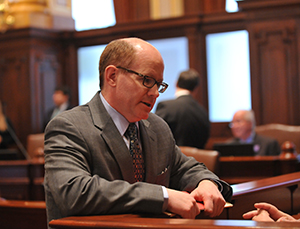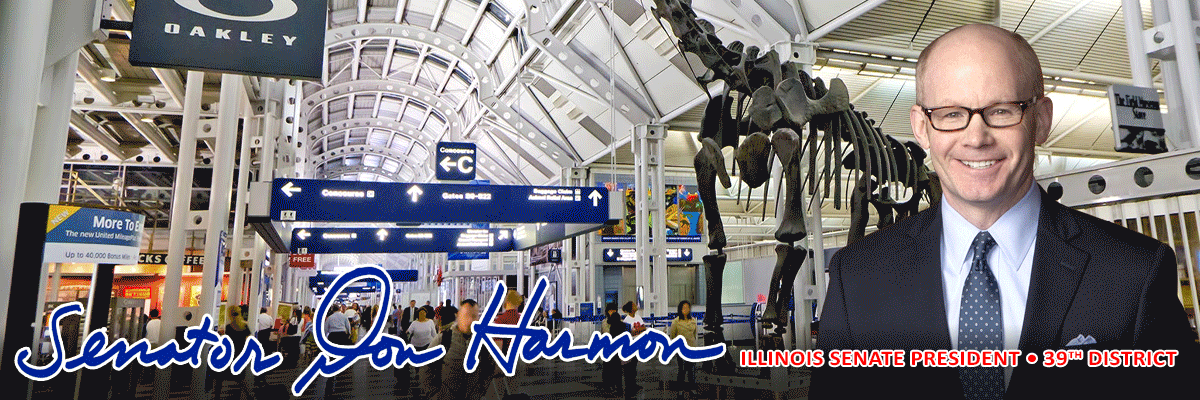 SPRINGFIELD – After months of working to find a reliable funding source for the embattled Illinois Poison Center, State Senator Don Harmon has found a plan that he is confident will work. It has already passed both houses of the Illinois General Assembly and awaits the governor’s consideration.
SPRINGFIELD – After months of working to find a reliable funding source for the embattled Illinois Poison Center, State Senator Don Harmon has found a plan that he is confident will work. It has already passed both houses of the Illinois General Assembly and awaits the governor’s consideration.
After his original plan – “The 2 Cent Solution” – hit a roadblock in the Illinois House, Harmon began working with the plan’s House sponsor, Representative Camille Lilly (D-Oak Park), to evaluate other alternatives that would allow the Poison Center to stay open and provide vital services to Illinois parents, medical professionals and others.
“Keeping the Illinois Poison Center open is vitally important,” Harmon said. “It saves lives and provides peace of mind to parents when their children swallow things they shouldn’t.”
In the end, he and Lilly found a solution that saves the Illinois Poison Center, preserves its public-private partnership and maintains the state’s investment through a unique funding mechanism that maximizes federal Medicaid matching dollars by means of a local hospital. This funding structure will not impact other hospital payment structures.
“We are grateful to Senator Harmon and the Illinois General Assembly for their work to find a dedicated and sustainable funding source to keep the state’s only poison center alive,” said Illinois Poison Center Medical Director Michael Wahl, M.D. “The state’s ongoing commitment shows our leaders understand the true value this service brings to Illinoisans. This funding structure is the answer we needed to continue our life and cost-saving work.”
This funding increase will make the hospital eligible for more federal Medicaid money, resulting in better services for the local community – especially the low-income members of the community. Because the state funding is tied to federal Medicaid money, it will automatically be renewed every year until 2018 unless state law is changed.
“This plan is a win for everyone,” Harmon said. “It provides the Poison Center stable funding through 2018, makes local hospitals eligible for increased federal money to provide services to low-income members of the community and saves the state some money.”




